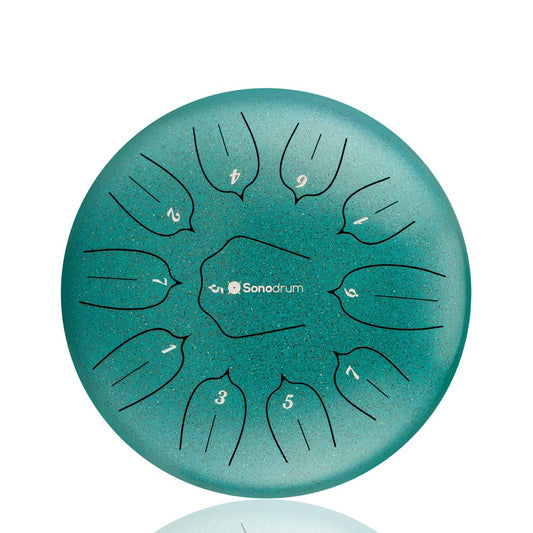In an age where technology often dominates the educational landscape, it's essential to recognize the value of introducing children to hands-on, tactile experiences that stimulate their minds and foster creativity. One such experience is learning to play the tongue drum. In this article, we'll delve into the educational and developmental benefits of introducing children to the tongue drum, highlighting its potential to enhance cognitive skills, creativity, and emotional expression.
Enhanced Cognitive Skills:
Learning to play the tongue drum engages various cognitive functions, including memory, attention, and problem-solving. As children explore different rhythms, melodies, and techniques on the tongue drum, they develop spatial awareness, hand-eye coordination, and fine motor skills. The act of memorizing patterns and sequences strengthens their memory, while improvisation and experimentation encourage flexible thinking and problem-solving. Research has shown that engaging in musical activities like playing the tongue drum can enhance cognitive abilities and academic performance in children.
Creativity and Self-Expression:
The tongue drum provides a creative outlet for children to express themselves and explore their emotions through music. Unlike traditional instruments that may require years of formal training to master, the tongue drum is accessible and intuitive, allowing children to produce pleasing sounds with minimal effort. As they experiment with different rhythms, scales, and timbres, children develop their musical intuition and cultivate their unique artistic voice. Playing the tongue drum fosters a sense of empowerment and self-confidence, as children discover the joy of creating music and expressing themselves in a meaningful way.
Emotional Development:
Music has the power to evoke a wide range of emotions, from joy and excitement to sadness and contemplation. Playing the tongue drum provides children with a safe and constructive outlet for processing their emotions and expressing themselves. Whether they're playing a lively rhythm to express happiness or improvising a soothing melody to calm their minds, children learn to connect with their feelings and communicate them through music. The act of playing the tongue drum can also promote relaxation and stress relief, helping children cope with the pressures of school and daily life.
Inclusivity and Collaboration:
One of the unique features of the tongue drum is its accessibility to children of all ages and abilities. Unlike traditional instruments that may require advanced technical skills or physical dexterity, the tongue drum can be easily played by children with varying levels of musical experience. This inclusivity fosters a sense of community and collaboration, as children come together to explore music in a supportive and non-judgmental environment. Playing in a group or ensemble encourages teamwork, cooperation, and social interaction, promoting empathy and understanding among children from diverse backgrounds.
Conclusion:
Introducing children to the tongue drum offers a myriad of educational and developmental benefits that extend far beyond the realm of music. From enhancing cognitive skills and fostering creativity to promoting emotional expression and social interaction, playing the tongue drum empowers children to unlock their full potential and thrive in all aspects of their lives. By providing children with the opportunity to engage in hands-on, tactile experiences that stimulate their minds and nurture their spirits, we can cultivate a generation of confident, compassionate, and creative individuals who are ready to face the challenges of the future with courage and resilience.




